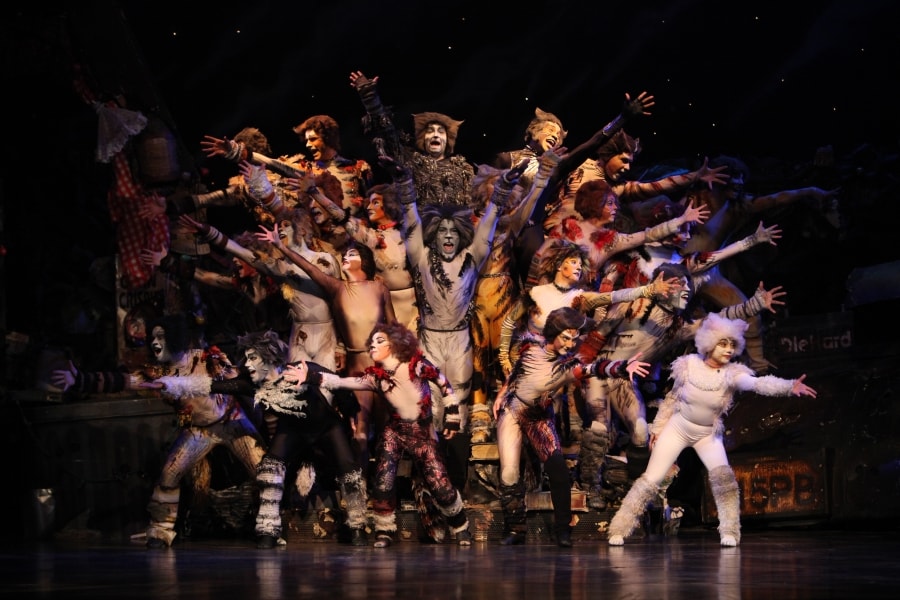TIGARD, ORE: Approximately 10 miles south of Portland is this suburb, population 48,000 and home to the Broadway Rose Theatre Company. The theatre produces musicals, develops new ones, and runs educational camps for children and teens. The company presents its work at two local school district buildings, and attracts audiences of all ages. We spoke to producing artistic director Sharon Maroney via email to learn more about producing musicals in the Pacific Northwest.
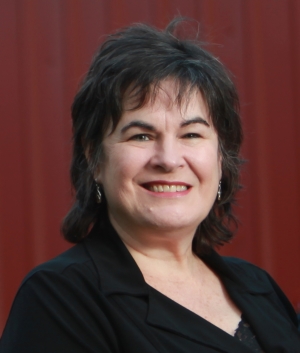
Who founded the Broadway Rose Theatre Company, when, and why?
I met my husband in 1984 while performing in a summer stock production of Joseph and the Amazing Technicolor Dreamcoat, in Shamokin Dam, Penn. We married a few years later and were raising our daughter in Queens. Our work schedules were drastically different, and our acting roles often took us out of state. Parenting our daughter while being separated from each other was challenging and we knew something was going to have to change.
We shared our dilemma with our friend Matthew Ryan (a native of Tigard, Ore., and resident of New York), and his partner Joseph Morkeys, and the four of us decided to start a summer stock theatre in Tigard, reasoning that the Portland metro area was large and sophisticated enough to support a new professional theatre. We wanted to create an entity that would let us have a family life as well as work as professionals in the theatre. So on Nov. 5, 1991, the Broadway Rose Theatre Company was incorporated as a 501 (c)(3), and we pooled our savings and came up with $21,000 to start the company. We opened our first summer season in 1992 at Tigard High School’s Deb Fennell Auditorium.
Tell us about yourself and your connection to the Broadway Rose.
Now in our 26th season, Dan and I still run the company. He is the managing director, and I am the producing artistic director. We are a good balance for each other. While we don’t always agree (and sometimes have intense arm-wrestling matches), I am ultimately the bottom line. Theatre, like all business, needs a leader with a clear vision. We have agreed that this is my responsibility as the artistic director, and it works well for us.
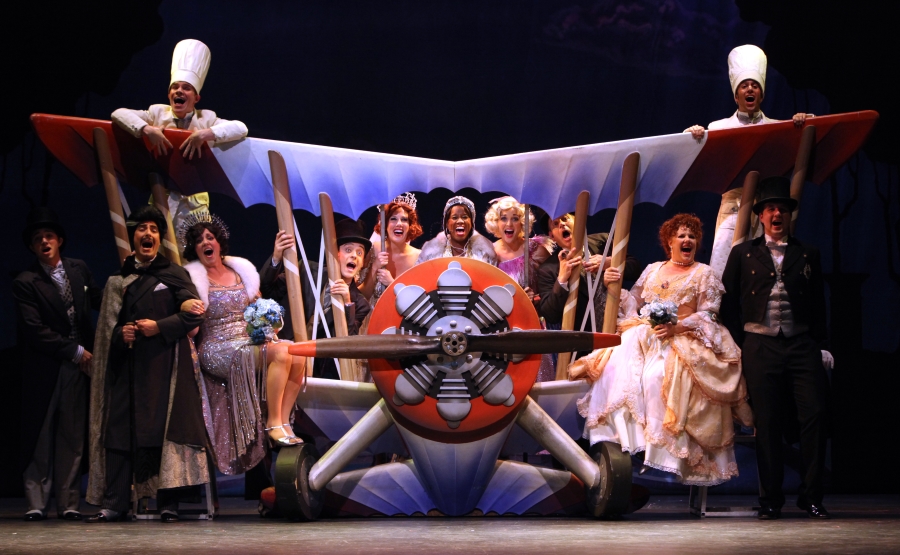
What sets your theatre apart from others in your region?
We are known in our region for our unique model: producing only professional musicals, and performing in two school theatres in the suburbs of Portland.
When we started the company in 1992, we forged a partnership with the Tigard-Tualatin School District, utilizing a local high school theatre for our performing space. Built on a city bond measure as a community performing space, the 600-seat auditorium was an ideal space for producing the large musicals we wanted to produce, and since we were a summer stock company, the space was available. The affordable rent kept our overhead down, and allowed us to put more money into our productions. We’ve seen lots of theatres in our region lose their performance spaces or struggle to keep their doors open. We are grateful for our relationship with the school district. They recognize the value that Broadway Rose brings to our community and continue to support our mission.
Tigard is a suburb of Portland—close enough to attract local talent, but just far enough away that our community has enthusiastically embraced our efforts to bring the arts to our growing county. We were the only theatre company in the immediate area, and the residents looked forward to our annual summer musicals. While most theatre companies in the region were dark in the summer, we offered five productions. We quickly attracted audiences from Portland and the greater metro area as our reputation for producing excellent summer musicals spread.
Broadway Rose is Oregon’s largest professional musical theatre company. We are proud that our reputation, community, and audiences have sustained us these years, and that other theatre companies in our county have since formed and found audiences as well.
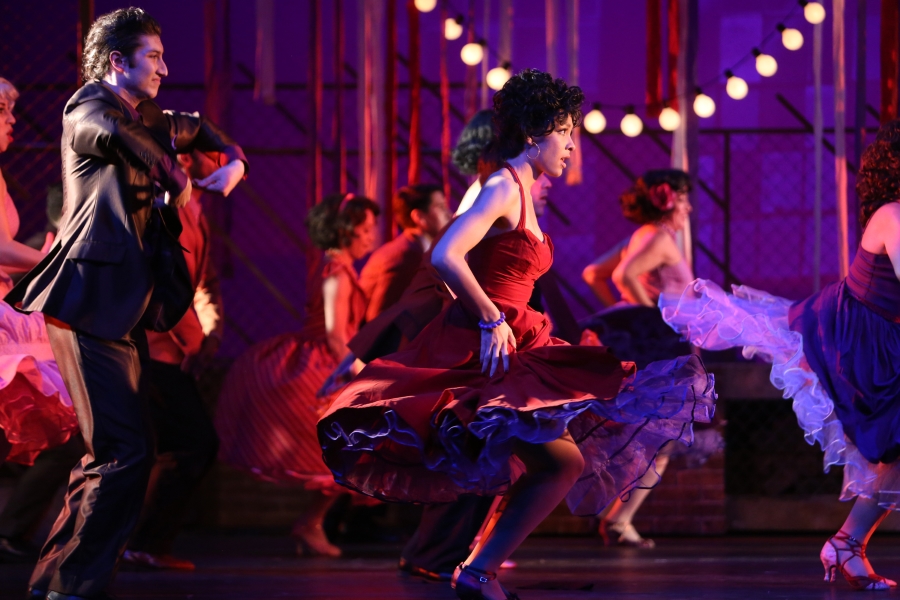
Who is your audience?
Unknowingly, we started our theatre a half-mile from two huge retirement communities. Like many theatres, we have a mature audience base that keeps changing as new folks move in. We also do children’s theatre and teen productions, and are working to expose as many young people to theatre as we can. Ten percent of our audiences are 30 years old or younger. We serve approximately 24,000 unique visitors each year: 40 percent from our county, 45 percent from the greater Portland area, and the remainder from all over the country.
Tell us about your favorite theatre institution other than your own, and why you admire it.
I admire 5th Avenue Theatre in Seattle. They are much larger than we are and produce, present, and help develop original musicals. They were very helpful when we were just starting out, and continue to be strong allies. We partner with the 5th Avenue Theatre’s Adventure Musical Theatre Touring Company each year to present an educational musical to the elementary schools in our local school district.
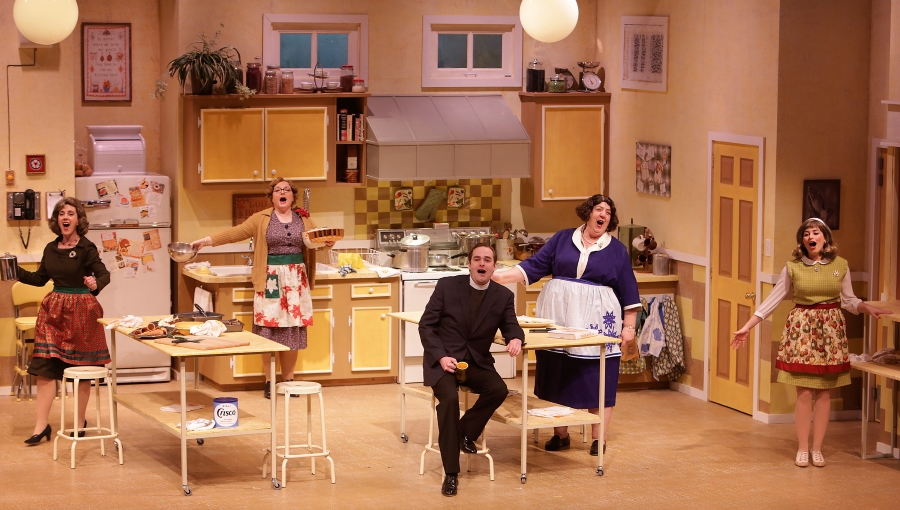
How do you pick the plays you put on your stage?
My husband and I were musical theatre performers, and we still have that unbridled passion for musicals. Picking a season—or should I say agreeing on a season—is the hardest thing we do. We have different tastes and that makes our programming interesting. We are committed to producing new or lesser-known works as well as classic Broadway musicals. We always want to balance our season with artistically satisfying productions and shows that will help us stay financially sound. Last season we did a new work called Fly by Night. It was wonderful—an artistic and critical success and our audience enjoyed it. We also did Church Basement Ladies—a definite crowd pleaser that sold out and helped support other productions that we knew wouldn’t make as much money but were important to produce.
What’s your annual budget, and how many artists do you employ each season?
Our annual budget is just over $2 million. We employ more than 225 artists each year, including 37 paid high school and college interns. We have 12 full-time staff members and 8 part-time employees.
What show are you working on now? Anything else in your season that you’re especially looking forward to?
We are opening Company tonight. We have a wonderful production and I am curious to see how our audience will like the show. We are in preproduction for Beehive, which I am directing. I am also looking forward to our fall production, a new show titled Trails.
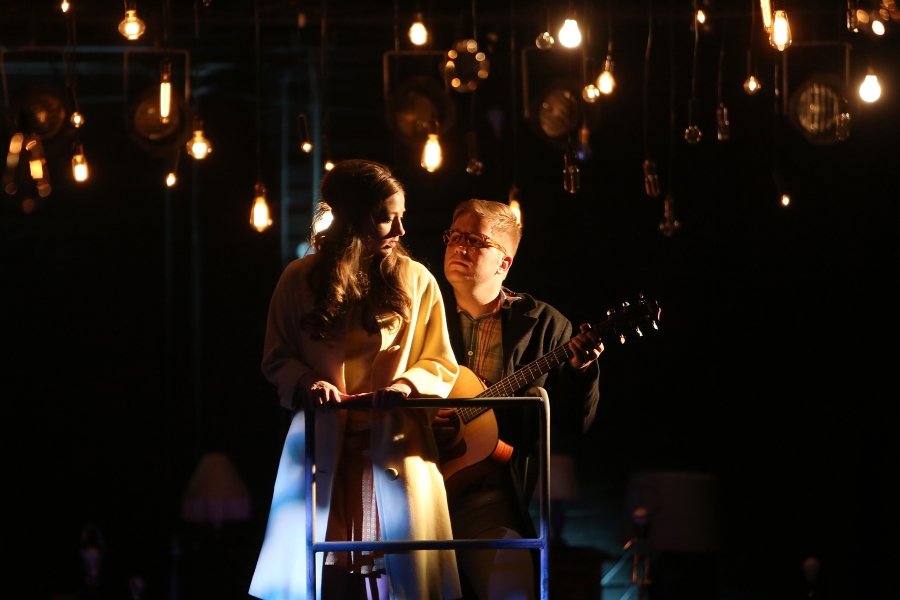
What’s the strangest or funniest thing you’ve ever seen (or put) on your stage?
A memorable scene in our 2001 production of Phantom was when the Phantom takes Christine on a boat and crosses a subterranean lake to his secret lair beneath the opera house. The boat operated manually, and I volunteered Dan Murphy to “drive” it. William Broderick as the Phantom stood on the back of the boat and steered with the rudder. Dan sat very low to the ground, almost reclined, facing backward, covered in a black cloth, and pushed the boat along with his feet. One night the steering mechanism broke and the boat headed toward the orchestra pit. The Phantom suddenly interrupted his song and yelled, “Stop!” Dan stopped in the nick of time. The Phantom got out of the boat and carried Christine offstage, leaving Dan to figure out how to get the boat offstage. The audience didn’t necessarily know that something had gone wrong, but I thought it was hysterical!
What are you doing when you’re not doing theatre?
Writing music, walking, having coffee with friends.
What does theatre—not just your theatre, but the American or world theatre—look like in, say, 20 years?
I am hopeful that the work will become more diverse. I am one of the masses who was inspired by Hamilton. I look forward to seeing more stories evolve about all different kinds of people.

